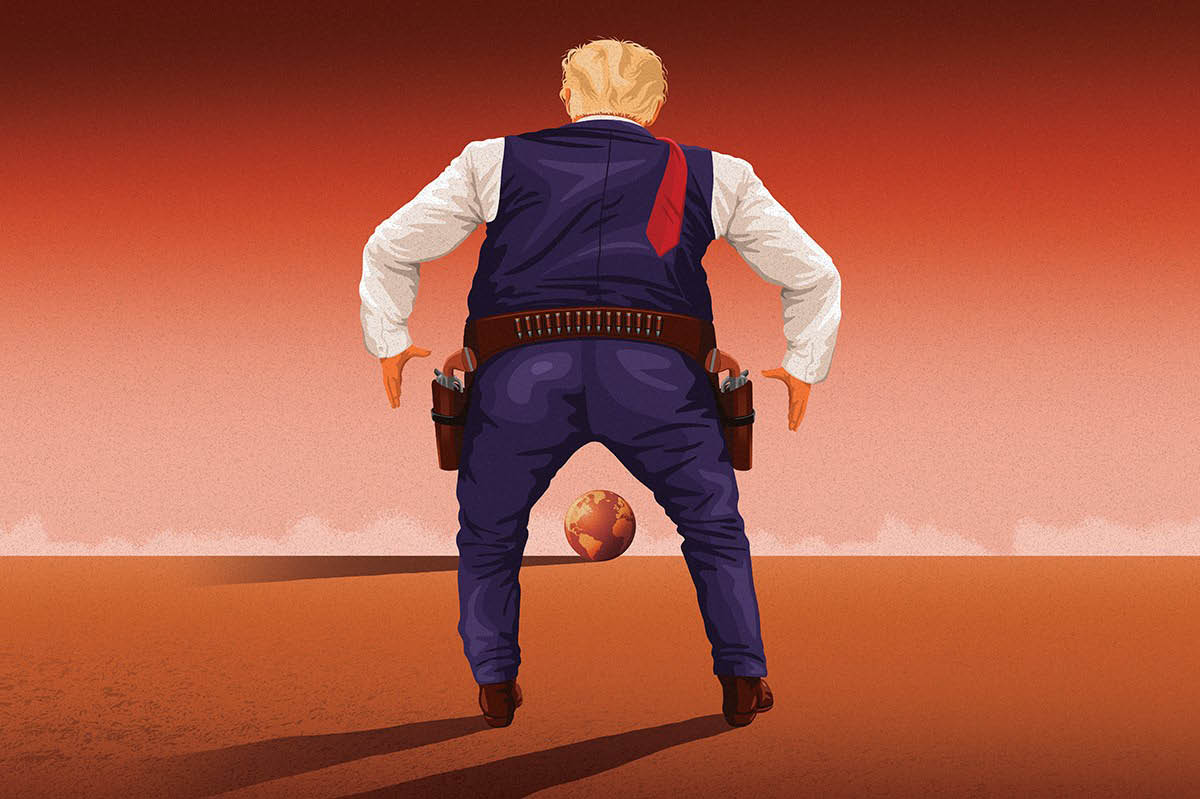
There will perhaps be more similarities between Donald Trump’s foreign policy and that of Joe Biden than is currently believed.
The Donald Trump who returns to the White House on Jan. 20 will not be much different than the one who left four years ago. His style of mixing chaos with competition will be the same. His communication will remain at times dramatic and often unrestrained. His obsessions, like immigration, or the feeling that the United States is a loser in the liberal international order, will again guide his actions.
An Unchanged Trump Doctrine
With this in mind, the broad outlines of the foreign policy Trump will attempt to pursue are already known. A vocal critic of international institutions and multilateralism, he will again withdraw the U.S. from the Paris Agreement on the climate. Insensitive to matters of human rights, he will not mobilize the international community to defend Afghans or the Uighurs in China. Convinced that protectionism is the key to the prosperity and reindustrialization of his country, he has already announced his intention to impose tariffs on both rivals and commercial partners.
Partisan of the “American fortress,” Trump will not slash the defense budget, while eschewing any commitment to costly military ventures abroad.
During his first term, one of Trump’s main motivations was to unravel the achievements of his predecessor, Barack Obama. Even if possessed by a will for vengeance on the eve of his second presidential term, it is not a given Trump will counteract Joe Biden on the principal issues Biden managed on the international scene. In fact, Trump’s future national security advisor, Michael Waltz, indicated last weekend that he was working closely with Biden’s current national security advisor, Jake Sullivan, and that they shared the same goals.
Ukraine’s Abandonment Is Not Inevitable
Trump’s intentions regarding the war between Ukraine and Russia raise perhaps the most questions and concerns. He even boasted that he could quickly end it. He certainly has some sympathies for authoritarian leaders like Vladimir Putin. Three factors, nevertheless, suggest that it is not inevitable that he will severely and entirely slash Washington’s aid to Kyiv.
First, it is unlikely Trump will want to be perceived as the one who “lost” Ukraine. Second, Ukrainian leaders, as with European and Canadian partners, have arguments to be made to convince Trump to maintain that aid — especially if those partners pledge to strengthen their commitments and assume a leadership role in line with their interests.
Third, and perhaps most fundamentally, the dynamics of the conflict over the past few months, as neither party seems capable of attaining strategic objectives, are increasingly opening the door to a pause in hostilities.
If Trump wants to contribute, he must appear firm toward Moscow and ready to grant solid security guarantees to Kyiv. Such parameters would largely be aligned with the paths currently discussed, more or less publicly, to freeze the conflict.
A Continuation of Biden’s Policies
For more than a year, the situation in the Middle East has been the other major foreign policy matter the current administration is focused on. In the case of the Israeli-Palestinian conflict, Trump’s return to power offers no glimpse into any radical change. If Biden has not managed to limit the scale of Israel’s military operations in Gaza, Trump is not expected to impose severe restrictions, or brandish the threat of a suspension of American military aid to the Hebrew state. It is equally inconceivable that he will commit to reviving the two-state solution. Here, too, Trump could be content with a conflict dynamic that suits his interests.
After months of intense strikes, Benjamin Netanyahu has sufficiently weakened Hamas and Hezbollah (and consequently Iran) to accept some type of pause. This will favor the restart of the normalization process between Israel and its Arab neighbors, starting with Saudi Arabia, to Trump’s great delight.
As for competition with China, Trump will not break with Biden’s approach, which itself is a continuation of the prior administration’s. A firmer stance is actually one of the rare areas of consensus in Washington.
In a report published last week, the bipartisan commission that advises Congress on Sino-American relations had recommended the termination of Beijing’s commercial privileges in the early 2000s and the creation of a Manhattan Project to secure American superiority in the domain of artificial intelligence.
The foreign policy of Trump’s second term will not be surprising, nor a radical departure from Biden’s. His impulsivity and unpredictability will come as no surprise to America’s adversaries, but will be a headache for its allies. The country that at one time deemed itself “indispensable” will perhaps be a little less so over the next four years. May it at least remain a shining city upon the hill.

Leave a Reply
You must be logged in to post a comment.